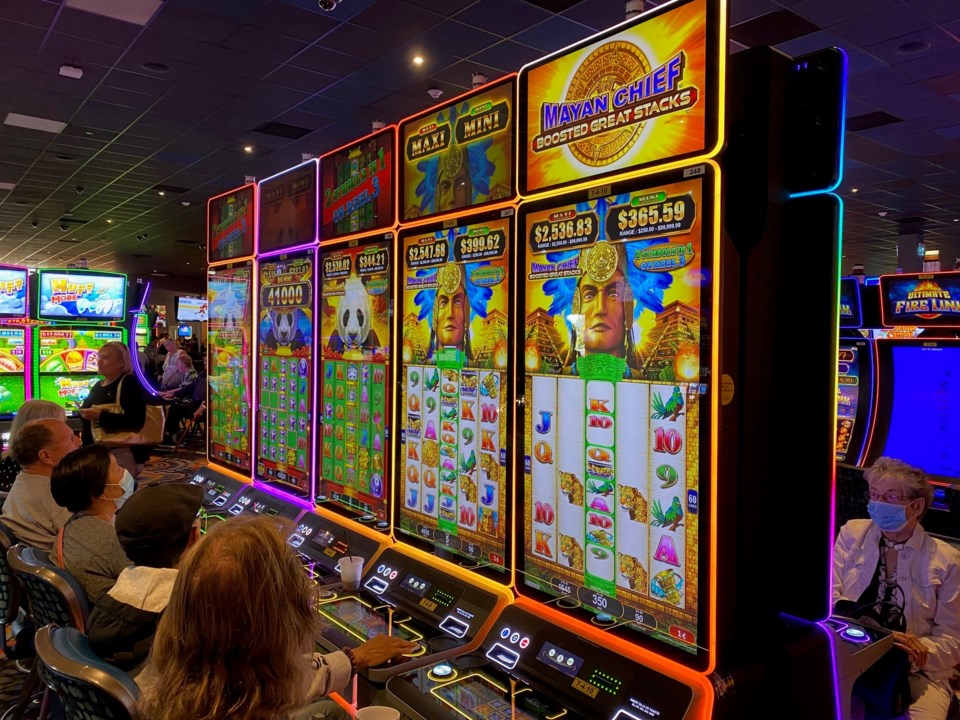Times and attitudes sure have changed when it comes to casinos.
The City of Delta in 2016 wasted no time submitting to the BC Lottery Corporation an expression of interest to be a host community for a new casino.
In its expression of interest, Delta’s vision for a gaming facility was for as a “complete entertainment complex” that would include a hotel, conference centre and restaurant.
It was a far cry from the city’s attitude toward gambling in the 1990s, when one had been pitched for the Tsawwassen First Nation.
Delta at the time conveyed opposition to a proposed destination casino and bingo facility at the First Nation, which would have partnered with Lady Luck Entertainment.
At that time, Coun. Bruce McDonald said they had always unanimously opposed the TFN’s plans to build a casino.
Council also warned it wouldn’t extend municipal services to any casino.
In 1996, the NDP government announced its expanded gambling initiative that called for destination casinos, slot machines and increased bet limits at charity casinos.
Coun. Krista Engelland responded, “‘The momentum in Delta has been ‘no’ to gambling. We’re still waiting for staff to bring back a bylaw amendment prohibiting Club Keno.’’
Other city councils at the time also didn’t like the idea of expanded gaming, including Coquitlam and Richmond.
Lou Sekora, who was Coquitlam’s mayor, said he was “totally opposed to any further expansion of gambling.”
In the late 1990s, Richmond council refused to allow Great Canadian Casino Company to relocate its tiny casino in the city to the much larger confines of the empty Bridgeport Market site.
That city was concerned about an expansion of gaming activities and wanted limits on the size of gaming facilities, said Greg Halsey-Brandt, Richmond’s mayor.
Both Coquitlam and Richmond eventually changed their tunes and large casinos are now a fact of life in those cities, as well as others.
Bucking the trend, somewhat, was Surrey, which had two gaming facilities.
Surrey a few years ago would have been home to a larger casino planned by Gateway, which wanted to shift its gambling licence from the Newton Bingo Hall to a proposed $100-million casino resort.
Surrey council, however, defeated that application, a move that prompted BCLC, which was looking to expand gaming south of the Fraser and in the North Shore, to invite cities to submit expressions of interest.
That’s when Delta jumped in with its expression of interest.
The City of Surrey and the TFN were also invited to make a submission,while Surrey said no thanks.
The Delta submission was clearly eager with a location already chosen at the Town & Country site. BCLC initially preferred the city find another location, including one in North Delta, before agreeing to Delta’s preferred site.
At the city’s 2018 public hearing on the application, McDonald said Delta had originally rejected the idea of having a stand-alone casino, wanting a larger amenity to serve the community.
He also said the project has many supporters in Delta.
“I do understand that there are many people who for very valid reasons are opposed to gaming, but I don’t know of a pub in Delta that isn’t a mini-casino,” he said.
Members of council and the public who supported the application also warned that the TFN could end up with a casino if Delta were to reject the proposal.
In September 2022, Gateway Casinos & Entertainment Ltd. celebrated the grand opening of the casino, located next to the interchange of highways 99 and 17A.
Having an adjoining hotel which opened later, the casino features 160,000 square feet of entertainment space with a gaming floor as well as Gateway’s signature restaurants.
Casinos in B.C. contribute 10 per cent of net profits to host local governments.




